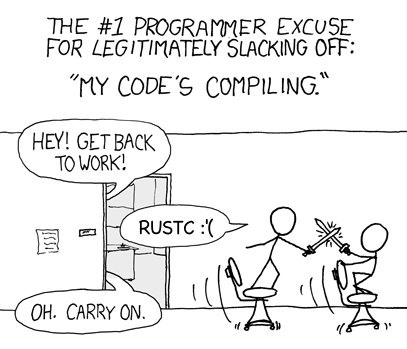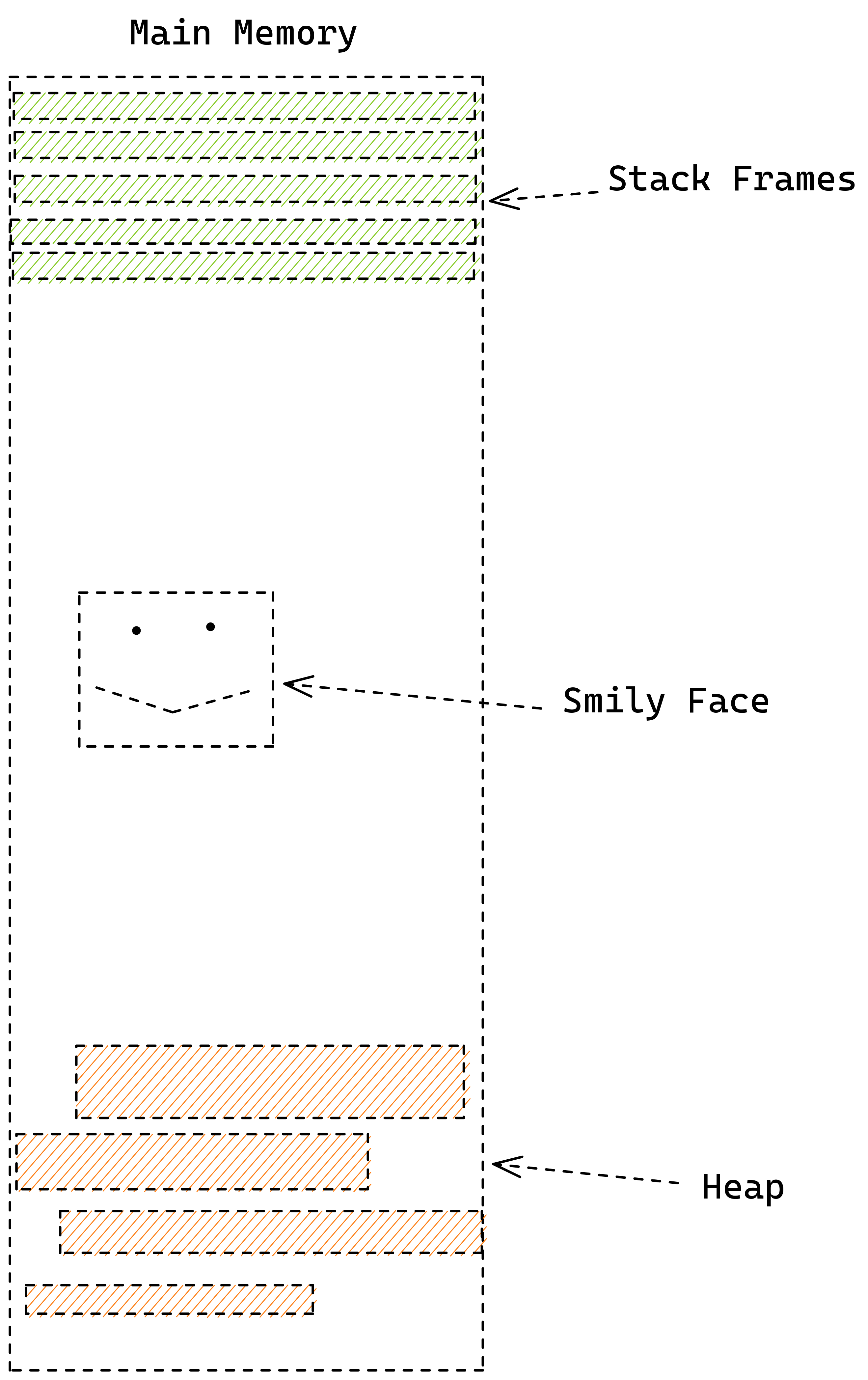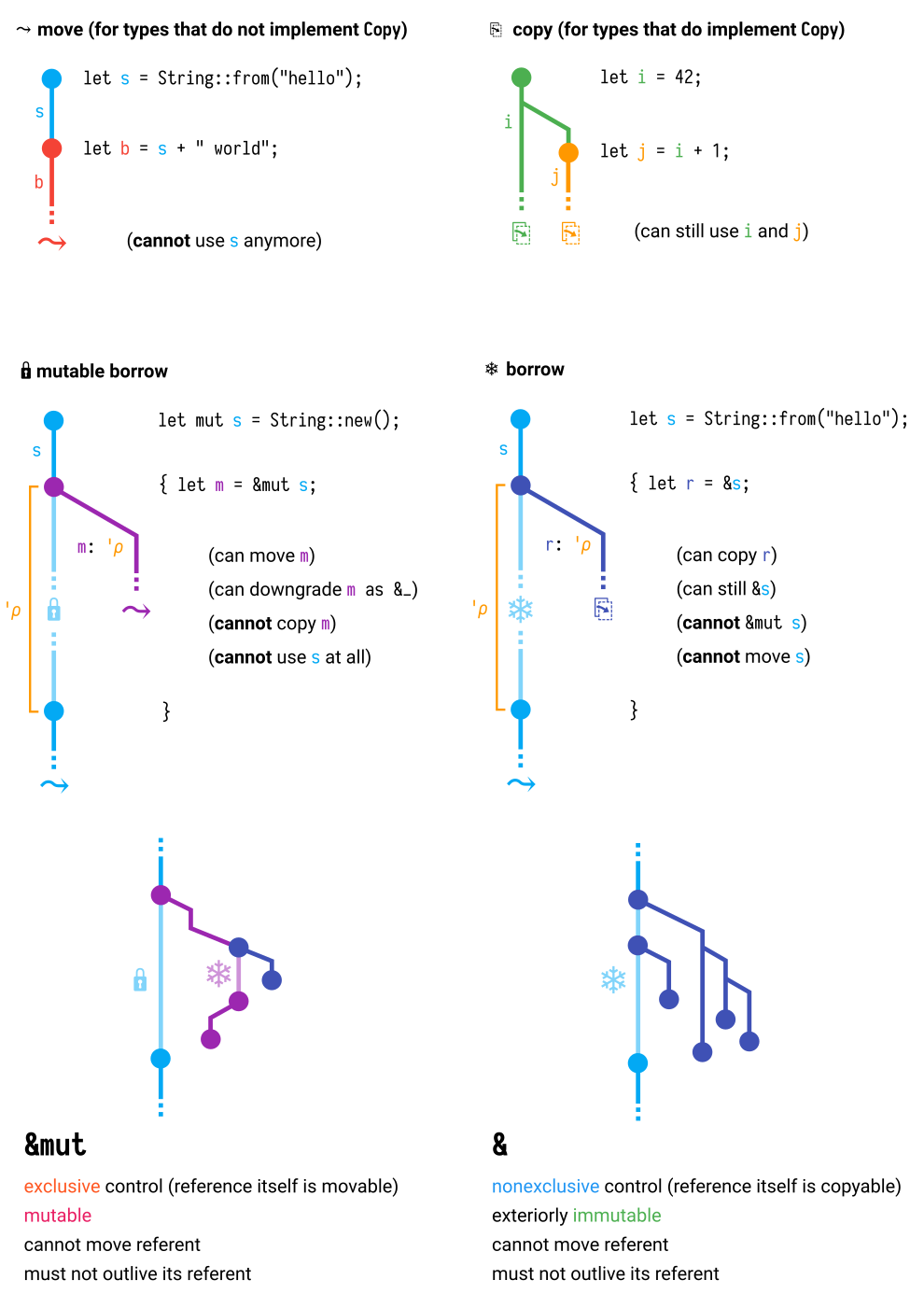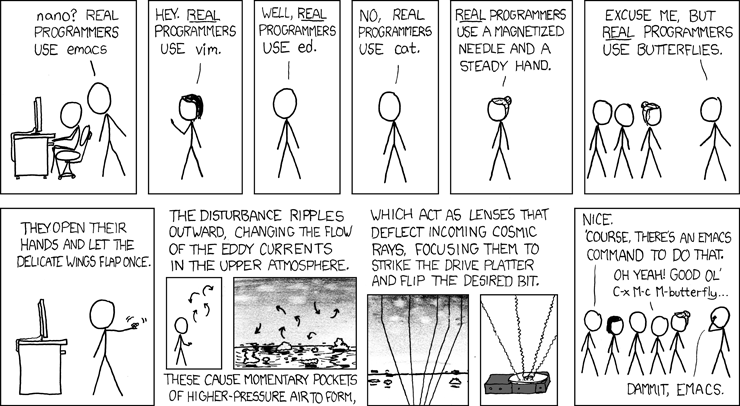PES Innovation Lab - Rustlang Workshop

Hello! I'm Anirudh Rowjee, and I'm extremely happy to be conducting this workshop on Rustlang for the PES Innovation Lab, which is a student research and development community located at PES University, RR Campus.
The Lab regularly does research-oriented projects, and will be recruiting soon! Keep your eyes peeled. You can follow the lab on Instagram at @innovationlab.pes for more updates.
Today's workshop covers the Rust programming language. Per the website, Rust is -
A language empowering everyone to build reliable and efficient software.
And you'll see that this is true to an large extent. Rust makes it extremely easy to write fast, concurrent and low-level code, with Performance akin to C/C++, with the ease of writing in a high-level language like Python or Javascript.
Now, you might ask - okay, that's all well and good, but why should I care? Do people even use Rust?
Rust can be used to build everything from Compilers to Embedded Software. Command Line Applications, Databases, Web Applications and Networked Applications are all things you can easily write in Rust.
In fact, if you're using Mozilla Firefox, there's an extremely good chance you've already used Rust - the Gecko CSS Rendering engine, which applies CSS Rules in the browser, is a Rustlang product. Discord, too, extensively uses Rust on the backend for their web applications.
Interested? I know I am. Let's get started.
What is Rust?
Ferris, the official mascot of the Rust Programming Language
Rust is a programming language invented at Mozilla Research in 2006 by Graydon Hoare as a side project. It focuses on Performance (code go fast), Type Safety (code know difference between number and string) and Concurrency (code do many things at the same time).
We'll dive into these one by one.
Performance
Rust code is verified to be just as fast, if not faster, than C, while having none of the pitfalls that C has when it comes to Memory Safety. A simple google search will show you multiple results for the same.
Type Safety
Rust uses an extremely strong Type system
Let's shamelessy steal from refer to the website to understand what Rust really cares about.
Why should I care?
- memory safety
- compile-time verification
- Rust used by Discord
- Rust in the Embedded setup
- Mark Russinovich (Azure CTO) on Rust
A Note about the Compiler
Memory Model and Ownership
From the Rust Book,
Ownership is a set of rules that governs how a Rust program manages memory.
Memory is important. Every program uses memory in some way or the other, and this mostly happens through interactions with the Kernel.
Some languages depend on the user for memory management, like C and C++. Other languages do not - they depend on the language runtime for Memory Management, like Python, or Javascript. These languages implement what is known as garbage collection (a very hard problem to solve), by automatically returning "unused" memory to the Kernel every once in a while.
The OS manages memory in two ways. Think of these two as the lead characters of the magnum opus that is memory management.
 The Memory Model for a simple program
The Memory Model for a simple program
The Stack
The stack is the first way memory is used. Allocations are predictably sized, and are easier for the kernel to keep track of. These units are called stack frames. In the context of a single program, one program occupies and allocates many stack frames.
The Heap
The Heap, also lovingly known as "The rest of memory", is a set of dynamically-allocated memory blocks. A program makes a runtime request for some memory, and the kernel allocates it, giving the program access to the same memory.
What's the difference?
The problem is that because heap allocations aren'tstatically sized, allocations on the heap are much slower than allocations on the stack, given there's an overhead to search for the best possible slot in which the kernel must allocate the memory.
Furthermore, accessing memory on the heap is slower, too, given you'll need to follow a pointer to get there.
TL;DR - Heap allocations are slow compared to stack allocations.
Since we can't allocate everything on the stack - because we need to know at compile-time - it's necessary to perform Heap Allocations.
The question now is - how do we make it as fast as possible?
Ownership
Rust doesn't use a garbage collector at Runtime, but you do not have to manage memory manually. How does this happen?
Rust has three simple rules, called the Rules of Ownership.
- Each value in Rust has an owner.
- There can only be one owner at a time.
- When the owner goes out of scope, the value will be dropped.
We'll understand more about this once we write some code, but this (3) is how Rust manages to be fast without having any runtime garbage collection at all. Since it's known at compile time as to which values have to be dropped when, it's extremely easy for the compiler to generate code to do that.
Since there's only one owner for one value, there's no question of a value being referenced after it's dropped, which we lovingly know as the Null Pointer Exception.
This is the reason that Rust takes time to compile, and also the reason that Rust is safe - once you know the model, it's easy for you to reason about whether or not a value will be in scope.
You can still share values between functions. The responsibility for making this happen lies with the Borrow Checker, which uses rules to make sure you're using memory and references responsibly.
 Rufflewind's Scratchpad - Graphical Depiction of Ownership and Borrowing in Rust
Rufflewind's Scratchpad - Graphical Depiction of Ownership and Borrowing in Rust
Another very cool thing that this system allows Rust to do is to prevent data races at runtime!.
Setup
Let's get started. Use this REPL to write some Rust code today. If you're using the REPL, don't worry about this next it.
For those of you on Linux - if you've already got Rust and Cargo installed -
$ cargo new rust-workshop
That should give you a structure something like this -
.
└── rust-workshop
├── Cargo.toml
└── src
└── main.rs
2 directories, 2 files
Cargo is the tool that rust ships with to allow building, debugging and testing to be easier. In fact, you just used it - cargo new helped you bootstrap a new project, much like the infamous create-react-app.
For those of you familiar with Javascript, cargo.toml is like the package.json of your Rust project. It's the single source of truth for all dependencies, commands and other information critical to the project.
Okay, let's get started. Pick your favorite editor (or butterfly), and crack open the main.rs file.
 XKCD: Real Programmers
XKCD: Real Programmers
How do I print something?
Hello, world!
fn main() {
println!("Hello, world!")
}
That's all. This is how you do Hello, world in Rust! This is a basic Rust program.
-
fn mainmarks the entrypoint of the linker and assembler. Every Rust program must have a main function. -
That funky
println!is what's known as a Macro - the compiler replaces this with other code during compile-time. Here's what's actually underneath that code -// Recursive expansion of println! macro // ====================================== { $crate::io::_print($crate::fmt::Arguments::new_v1(&[], &[])); }All this goes to say that the Rust compiler is very smart, and it's possible for it to know a lot about the code that you write. It also catches things like memory safety bugs, which is a huge win for companies writing software safe, reliable software (which is just about everyone).
Say my name
Let's make this Rust program greet us. Expected behavior is as follows -
- Say Hello, world!
- Ask the user for their name
- Print this name
Say no more.
use std::io;
fn main() {
// Print hello, world!
println!("hello, world!");
// Declare a new string
let mut name = String::new();
// Declare an I/O Handler to interact with the OS, and read from it
let stdin = io::stdin();
stdin.read_line(&mut name).unwrap();
// Print the formatted name
println!("Hello, {}", name);
}
Man, that's quite a bit. Now that we know this runs, and works, let's ask ourselves some questions -
-
use std::io? What's that?Rust uses the
usekeyword to allow us to import packages or libraries into the program. -
let mut?Variables in Rust are immutable by default.
let mutallows us to declare a mutable variable, meaning that its value can be changed. -
What the hell is
.unwrap()?As we know, there are many operations that can fail when we're writing a program. The
.unwrap()call just tells the compiler to crash if this fails.What if we don't want that? Let's look at what Unwrap does under the hood. Don't Panic!
match read_result { Ok(bytes_read) => println!("{} Bytes Read", bytes_read), // looks like we panicked :( Err(err) => panic!("{}", err) }This works because of what's known as the
Resultenum. It's a set of pre-defined states or values, of which only one can be valid at a time.
Building a wordle validator
The goal is simple - given two five letter words target and input, we match input to target letter by letter, emitting the color that you'd expect in the actual game.
fn main() {
}
What are enums, and what's the match block?
Enums are values that can be in only one of a set of predefined states at once.